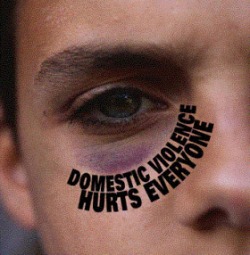 SooToday.com received the following letter from Step It Up Coalition about the coming provincial election and efforts to stop gender-based violence.
SooToday.com received the following letter from Step It Up Coalition about the coming provincial election and efforts to stop gender-based violence.
The first was the mass attack in Santa Barbara, California where an offender killed six and wounded 13 others, pinning both his angst and methods on women who rejected him.
Another is the escalating sexual violence against women in India, where two teenage cousins and then another woman were raped and beaten last week, their bodies left abandoned to die.
What stands out in these narratives is not only the what, but the ongoing public speculation on the how: that is, in what ways can larger mechanisms - such as government policy, the law, prevention and government-supported social services - better address acts of gender-based violence.
A Twitter account, #YesAllWomen, rose in response to the Santa Barbara attacks, detailing countless women’s experiences with gender-based violence; and Richard Martinez, the father of one of the victims and a public defender, spoke out about American politicians who have supported the gun lobby.
Across the world, Indian activists and their allies watched in dismay as police silenced protesters with water cannons, instead of holding sexual offenders accountable.
The stories of Santa Barbara and India stand out in this moment of public witness, horror and reflection as examples of how governmental action can become complicit in violence targeting women.
On the other hand, we are left to consider the ways in which the lives of women and girls are safeguarded when our governments collaborate against contexts that feed gendered violence: working against gendered poverty, for example, increasing safe shelter and crisis supports, changing inequity and ensuring access to the law.
Canada is not immune to the impacts of government action upon gendered violence. In another news story, this one much closer to home, RCMP confirmed that 1,186 Aboriginal women are missing and believed murdered in Canada over the last three decades.
Carol Goar (The Star) points to the role of government embedded in the problem: “this issue goes far beyond the purview of the police,” Goar states. “A parliamentary committee that recently studied the epidemic of violence against indigenous women concluded it was rooted in the poverty, isolation, substandard housing, underfunded schools” and other social issues; which, by extension, is rooted in the “government’s failures” to address the situation of aboriginal women —in its place, offering “a long history of neglect, condescension and stinginess”.
In Ontario, our capacity to address and prevent violence against women is likewise connected to our provincial government’s interest in doing so.
Between 1995-2003, when the provincial government cut funding to women’s shelters, rape crisis centres, social assistance rates and other supports, the province saw multiple inquests (May Iles in 1998, Teresa Vince in 1997 and Gillian Hadley in 2002), each highlighting the role that government budgets and social policy can –and should - have in supporting women in situations of domestic, sexual and workplace violence.
Since 2004, the Ontario Liberals’ Domestic Violence Action Plan has implemented initiatives to raise awareness of domestic violence and strengthen support for victims.
These include, among other things, training for more than 34,000 front-line service providers and amendments to the Occupational Health and Safety Act to prevent violence in the workplace, including domestic violence and sexual harassment.
The Liberal-initiated Sexual Violence Action Plan (2011) provided an additional $3 million over four years to sexual assault centres across the province to increase their response to victims of sexual assault in their communities, and to challenge attitudes about sexual violence.
The Ontario New Democratic Party also has a strong record of working to end violence against women, recently arguing against a governmental decision to reduce the length of time that offenders must spend in Partner Assault Response Programs (PAR).
In view of the upcoming Ontario election, Step It Up—a coalition of women’s equity-seeking groups representing over 150 organizations—wrote the three major party leaders and asked how their party would speak to the needs of women experiencing violence in Ontario.
The Liberal Party noted that their budget proposes an additional $15 million over three years to women’s shelters – a commitment they will maintain if elected.
The Liberals and the NDPs both state that, if elected, they will invest $2 million to support a Joint Working Group on Violence against Aboriginal Women.
The NDP party also confirm that they will maintain the current funding allocation for organizations that serve women experiencing violence.
The Ontario PC Party did not respond to queries on how their party will address gender-based violence.
As women’s advocates in California and India would no doubt agree, it takes both community and our elected representatives to shift the realities of gender-based violence.
Ontario’s record has shown that government commitments to addressing sexual and domestic violence make a clear difference in the lives of women and girls.
We need to work together to prevent violence, change the laws, and provide compassionate services.
Ask your candidate what their party will do to end violence against women and children in Ontario.
*************************